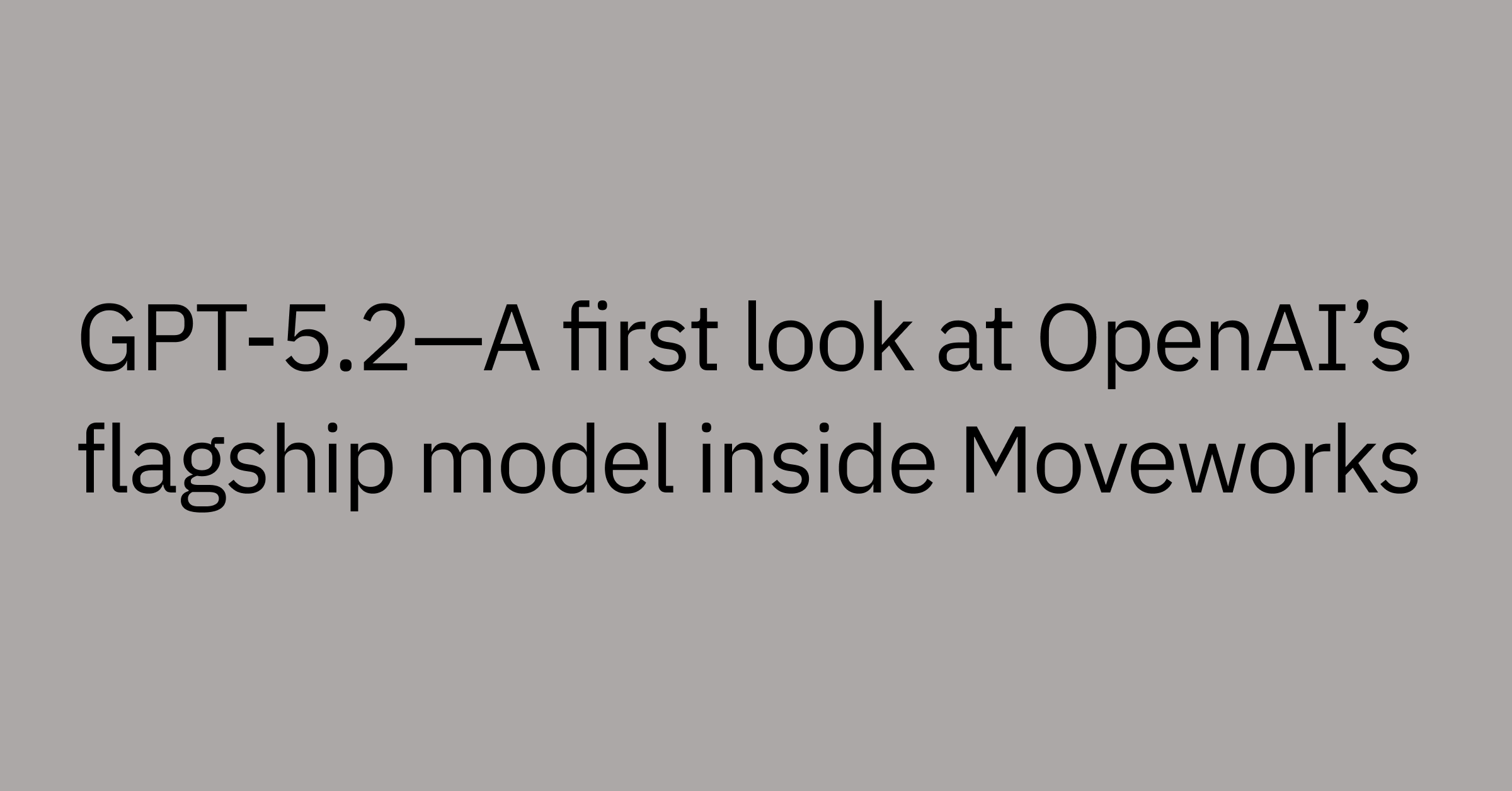Table of contents
Enterprise AI adoption rates are skyrocketing. While around 48% of organizations explored the use of AI technology over the past 5-7 years, this figure jumped to 72% in the last year alone.
A driving component of this growth trend has been the level of scale, efficiency, and automation that AI solutions provide. As more organizations recognize the long-term value and productivity gains that AI is bringing to their industries, the number of enterprise AI use cases has exploded. Here’s our analysis of the top 6 enterprise AI use cases across departments and some examples of the top AI use cases in business.
Discover how even with AI technology still relatively new to the enterprise world, how you can find unique opportunities to streamline countless elements of your operations and reduce costs all while leveraging advanced AI like generative AI and agentic AI.
The top 6 enterprise AI use cases to transform your business
1. Human resource management: AI for HR
Many organizations are using AI technology integrations to help their HR teams automate administrative tasks like onboarding and benefits management, gaining back the critical time they need to focus on activities that require a human touch. Specifically, AI in HR can allow organizations to engage new hires proactively, simplify compliance, customize onboarding activities across locations and languages, and fuel personalized career growth.
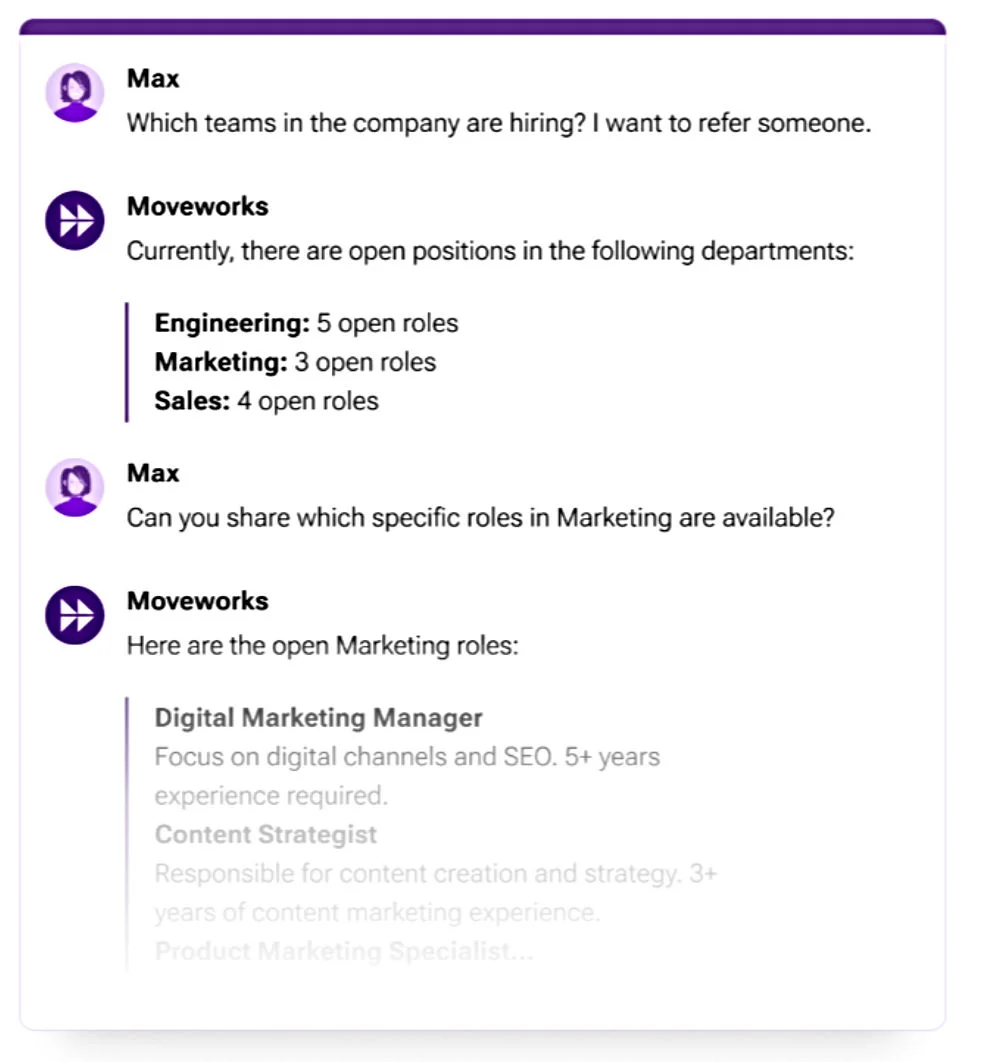 An example of AI for HR
An example of AI for HR
Many organizations are using AI technology integrations to help their HR teams automate administrative tasks like onboarding and benefits management, gaining back the critical time they need to focus on activities that require a human touch. Specifically, AI in HR can allow organizations to engage new hires proactively, simplify compliance, customize onboarding activities across locations and languages, and fuel personalized career growth..
For example, Palo Alto Networks needed to support a growing workforce of nearly 15,000 employees when shifting to a hybrid working business model. Leveraging an AI-powered Assistant solution, the organization saved 351,000 hours of employee productivity by using an autonomous conversational AI bot that was able to interface across its diverse enterprise systems.
Simplify recruiting and onboarding
Effective recruiting and onboarding workflows are essential to support new employees’ success and reduce business turnover rates. AI in HR can simplify these processes by providing instant feedback and real-time support for new hires.
Advanced AI platforms can use machine learning models to automate tasks like providing responsing to common onboarding questions or guiding new employees through company training processes. This helps to keep new employees on task and quickly get them up-to-speed on how to best perform in their roles.
Empower employees with self-service AI
Even if your business has already invested in a company intranet or provides employees with direct access to knowledge base portals, this won’t necessarily eliminate questions. But rather than tasking busy HR professionals with responding to these inquiries, AI can create a self-service option for employees.
AI tools can do more than find relevant resources and answer questions. Using deep learning algorithms, these AI tools can extract the meaning from phrases and sentences to understand the context surrounding employee inquiries, and the inquiry itself. The AI tools can then use this to decide on the most applicable informationto surface or most accurate solutions to provide.
Simplify compliance
A major hurdle that modern HR teams face is maintaining compliance with regulatory requirements when handling employee data sources. Failing to meet data standards or challenges in handling sensitive business information may lead to increased legal and security risks.
AI-driven systems can minimize the need for human intervention when dealing with strictly regulated business processes. With the appropriate security guardrails and compliances in place, secure AI tools can learn from the appropriate interactions between IT departments and HR teams and improve the accuracy, relevance, and reliability of their responses over time.
This dynamic adaptation lets businesses create highly accurate automations designed to offload data management procedures and minimize the amount of internal or external exposure data has in and out of transit.
2. IT Operations Management: A significant part of AI for ITSM
IT departments carry out a number of essential business operation procedures every day. From managing critical infrastructure and cloud-based deployments to configuring company access controls, IT teams have to maximize their efficiency to keep up with ongoing demands.
With the help of AI integrations, organizations can completely redistribute their IT Operations Management (ITOM) workloads to save significant resources normally exhausted on repetitive tasks.
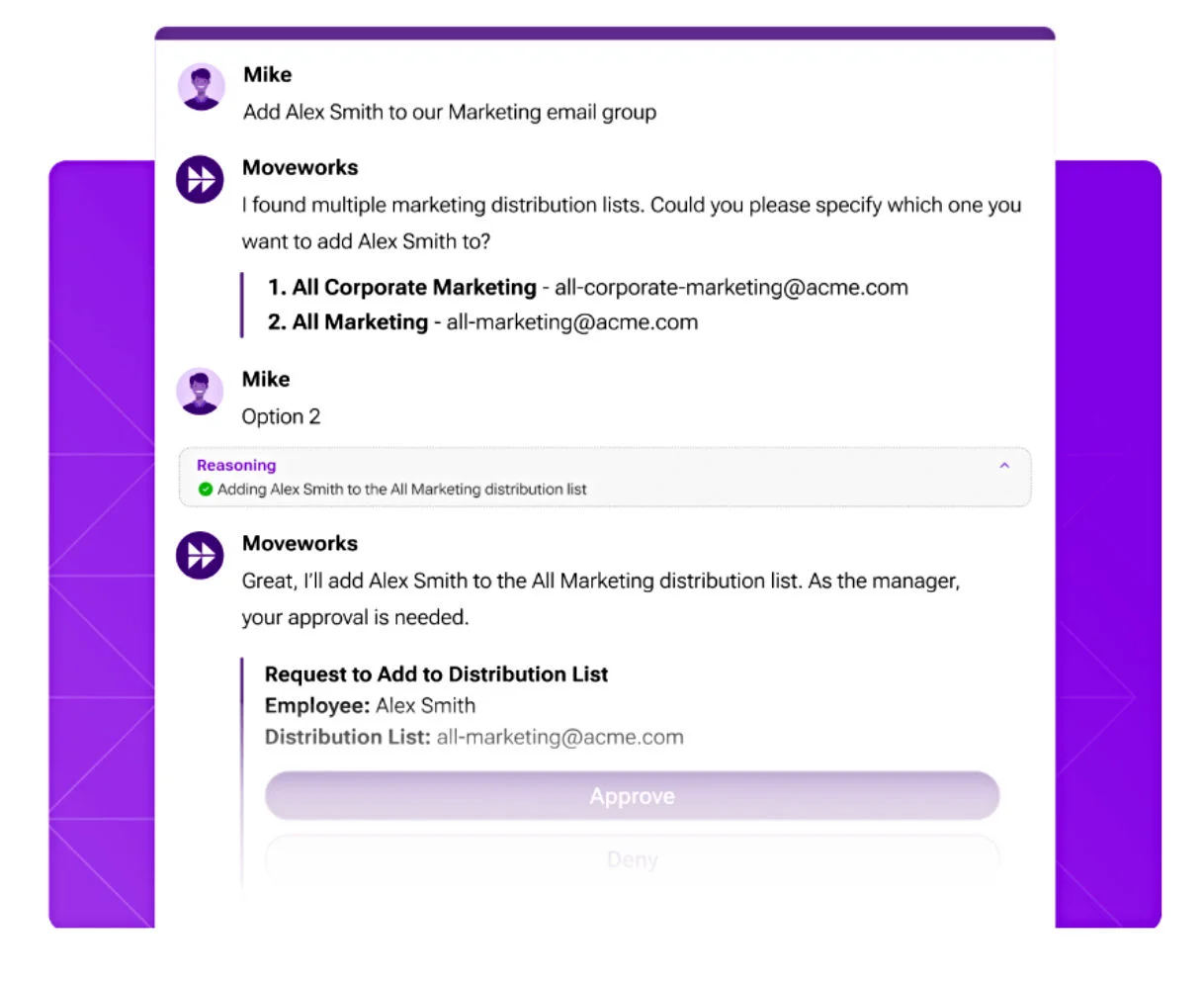 An example of Enterprise AI for ITSM
An example of Enterprise AI for ITSM
According to a recent PwC study, businesses using AI-enhanced cybersecurity solutions saw a 40% reduction in their response time to cybersecurity incidents. However, the added operational efficiency that AI provides is useful to businesses in more areas than just cybersecurity. It extends to all areas of operations, leading to better data-driven decision-making, increased security and compliance standards, and improved cross-team collaboration.
Automate IT service management
Answering support tickets and categorizing IT service issues can take a lot of time and careful coordination. However, rather than deciding which problems deserve the attention of their IT teams, enterprises can use AI solutions to streamline all of their service management tasks, carrying out multiple critical IT functions at once.
AI Assistants and other AI-enabled tools can:
- Automatically handle routine IT tasks like password resets or hard configurations
- Provide self-service options for more common IT-related issues
- Handle support ticket categorizations and escalations
- Reduce workloads on IT departments, allowing them to focus on more critical elements of infrastructure development
Predictive analytics and anomaly detection
A business's ability to quickly recognize and respond to potential security threats is critical for its long-term viability. AI tools have proven invaluable in this regard, significantly improving an organization’s capabilities to better predict emerging threats and recognize potentially dangerous patterns in network activity while streamlining their response initiatives.
AI-enabled fraud detection solutions can monitor highly complex business infrastructures, leveraging system logs, network traffic, and user activity behavior to analyze the likelihood of a data breach. This proactive anomaly detection strengthens their security readiness, giving them the ongoing security support needed to avoid compromising sensitive intellectual property and stay one step ahead of malicious attackers.
3. AI in engineering
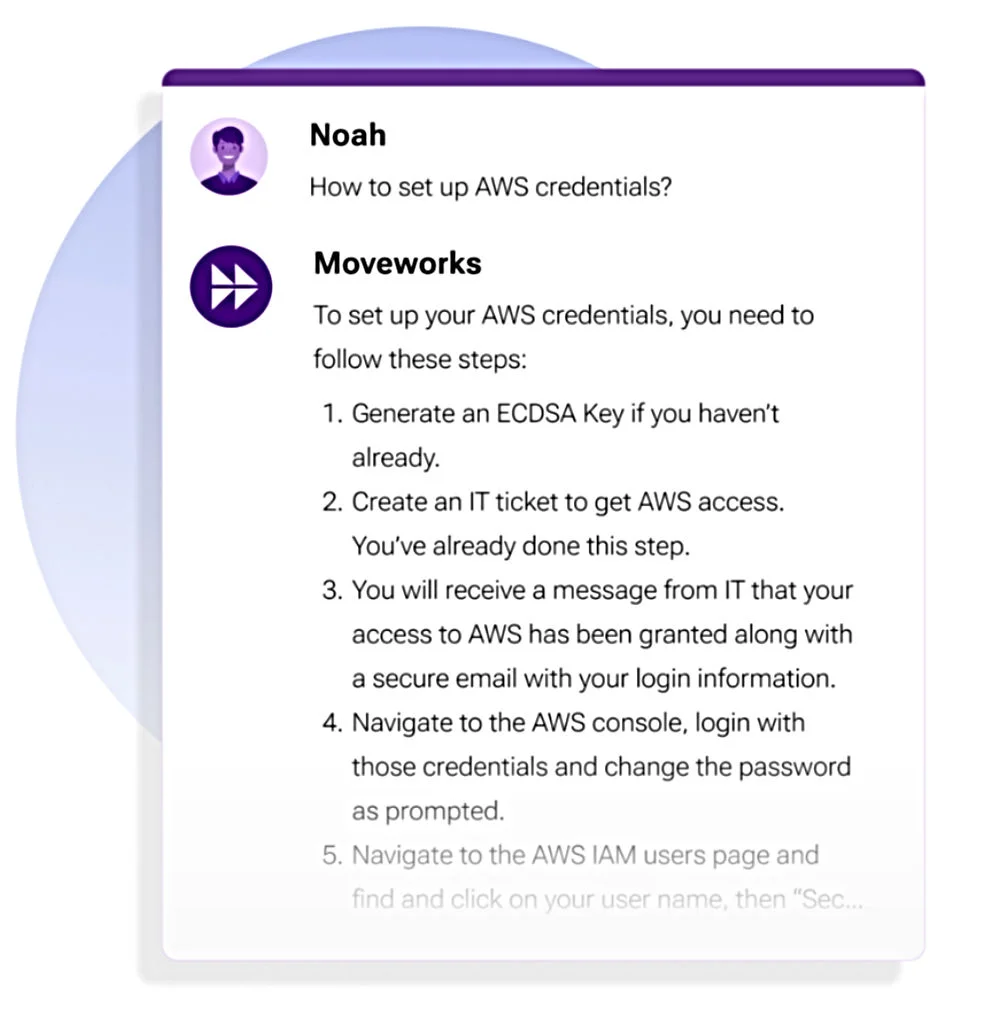 Example of enterprise AI for engineering
Example of enterprise AI for engineering
AI technology has completely reshaped how businesses approach their product development processes — specifically when it comes to extracting more value out of their cloud projects.
PwC’s 2024 Cloud and AI Business Survey shows that 75% of top-performing companies have already invested in generative AI solutions across their SDLC. This rapid adoption is fueled by the increased productivity and faster time to market that new AI tools provide.
By leveraging the automation and accuracy that AI technology delivers, modern engineering teams can code faster while automatically detecting bugs or flaws across all of their development stages. This frees up significant time spent going back and forth between testing phases and remediation, allowing development teams to put more energy into higher-level or strategic projects and meet critical deadlines.
Eliminate barriers to system and database access
To manage their workloads effectively, engineering teams need on-demand access to the relevant systems and databases. Rather than stopping what they’re doing to request access to new areas of a system or network, they can use AI automation to grant access automatically and make secure access management effortless.
AI solutions shrink wait times for request ticket resolutions, mitigating production slowdowns and project timeline delays. AI-enabled access management systems can leverage predefined roles and permissions to keep teams productive and minimize disruptions to development lifecycles.
Rely on a single source of truth
It’s a challenge for engineers to comb through hundreds of documentation files or databases, looking for various assets to help them complete their tasks. Many times, critical information is spread across multiple business systems, and teams waste valuable time and resources simply looking for relevant data.
AI-enabled enterprise search eliminates these inefficiencies by creating a single source of truth for data lookups where teams can find the information they need using simple queries, in an intuitive chat-based UI, powered by natural language processing. When integrated across an enterprise's entire technology stack, enterprise search solutions look through all relevant datasets at once, quickly filling any critical knowledge gaps and minimizing costly downtime.
Anticipate and detect system outages and other issues
System outages can lead to costly disruptions that impact revenue streams and even damage customer relationships. AI-enabled tools minimize the frequency and duration of these occurrences by proactively monitoring systems and providing early notifications of potential problems.
AI solutions can also analyze historical data and benchmark it against various industry standards. This gives teams valuable insights into service performance and helps them build and configure more resilient systems and supporting infrastructure.
4. AI for sales
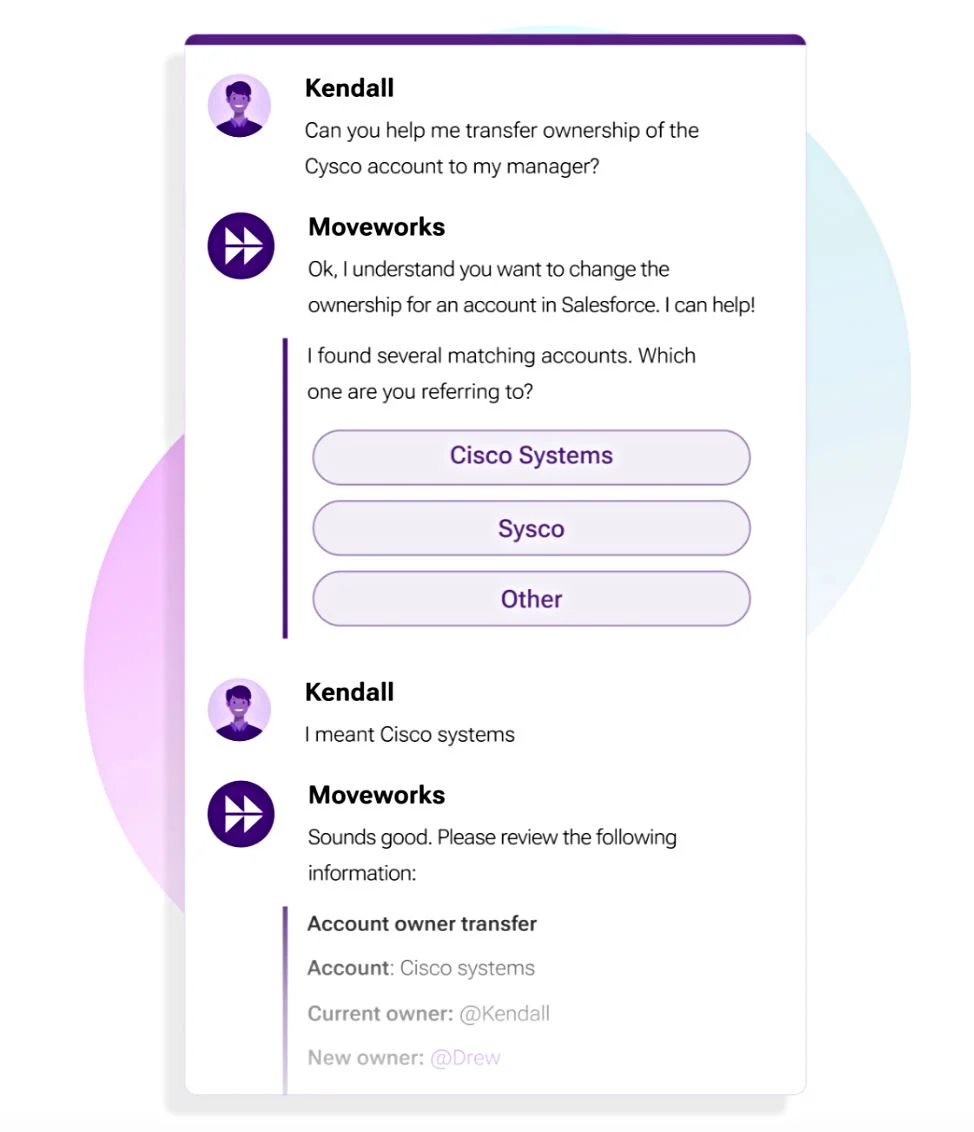 Enterprise AI use case for sales
Enterprise AI use case for sales
A recent HubSpot report shows that 43% of sales professionals are now actively using AI technology to help manage their lead pipelines and client interactions.
By integrating with Customer Relationship Management (CRM) solutions and communication platforms like Slack and Microsoft Teams, AI technology creates a unified workspace for sales teams to operate.
With real-time access to customer metrics, emails, and shared documents, along with the ability to automate repetitive lead management activities, sales teams can build better relationships and close more deals.
Improve the customer experience
For sales teams to be effective, they must continuously look for ways to stay more responsive to client needs. This involves listening closely to customer needs while regularly looking for more ways to add value to their relationships. AI-powered enterprise search gives salespeople easy access to past conversations, pricing levels, and customers' purchasing habits.
When sales teams have immediate access to every customer’s history, every interaction they have becomes more engaging and purposeful. In addition, generative AI tools can automate the creation of email proposals or client follow-ups, ensuring that every customer gets the immediate and personalized attention they deserve.
Maintain accurate customer records
Regular CRM system maintenance is important, but also time-consuming. Rather than manually managing the repetitive administrative tasks needed to keep client records up-to-date, sales teams can use AI solutions to make this process much faster and more efficient.
AI technologies are integratable with many modern CRM solutions. Some of these intelligent tools use conversational AI interfaces that allow sales teams to use simple, familiar, and intuitive chat interfaces to request real-time changes to customer records.
Understand what’s driving sales
Knowing which sales tactics are working and which aren’t is critical for making smarter business decisions. AI technologies provide sales teams with rich customer data insights that analyze purchasing habits across various channels and product lines.
By helping teams visualize their territory’s performance, AI tools drive more impactful marketing campaigns and selling strategies that lead to better long-term results.
5. AI in finance
As enterprises increase their spending on infrastructure developments and sales expansion efforts, establishing long-term financial strategies is essential. A 2024 Gartner Survey revealed that 58% of finance leaders leverage AI technology to streamline their workloads, and another 21% are already in the implementation planning stages.
Using artificial intelligence, businesses can significantly improve the accuracy and efficiency of their strategic planning efforts. From automating invoice processing to providing financial services to other organizations, AI solutions allow finance teams to offload many of their administrative tasks and focus more of their attention on optimizing financial health.
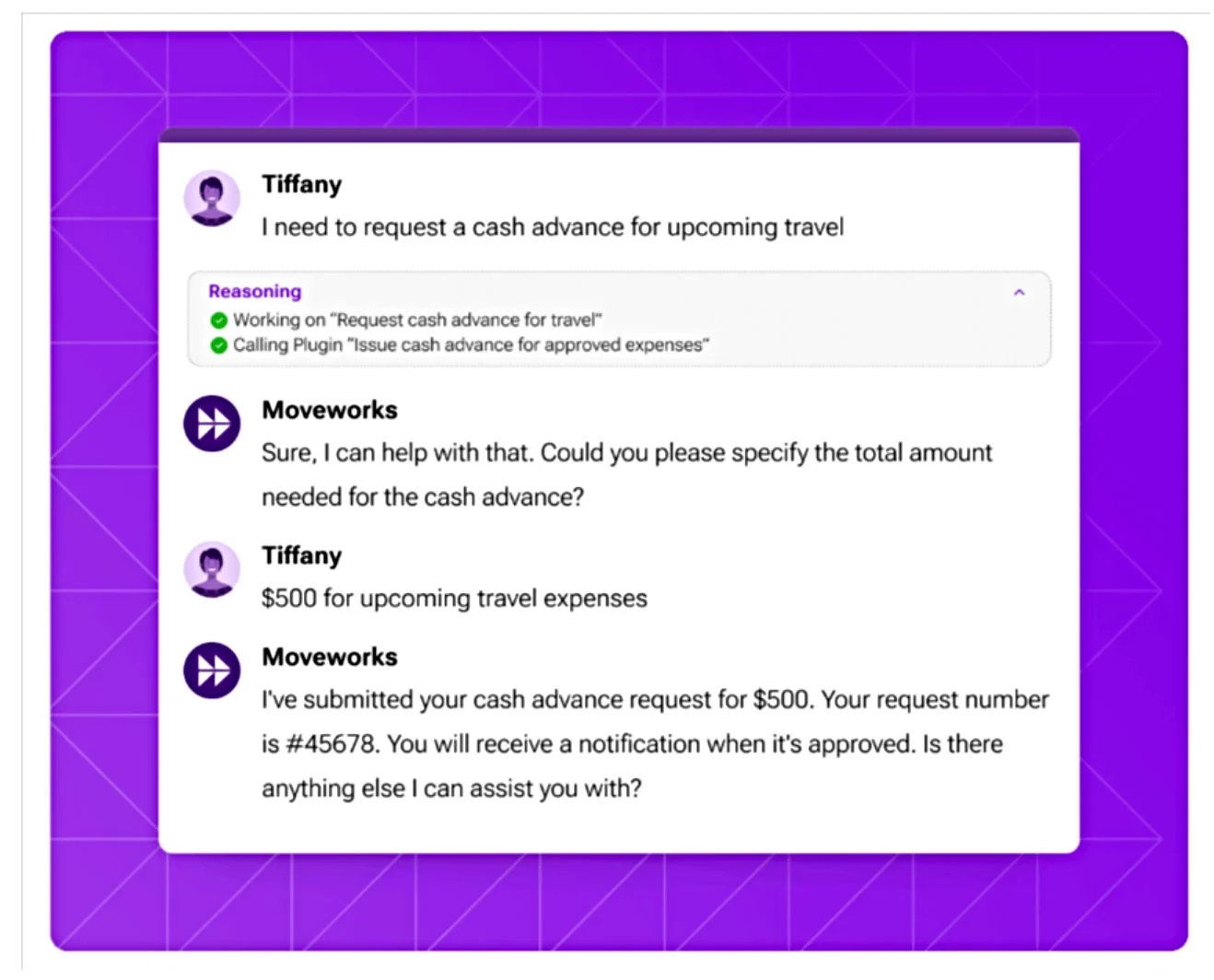 AI in finance: An example use case
AI in finance: An example use case
Streamline expense management
Managing business expenses is a key responsibility of financial departments. Depending on the size of the organization, this can take up a considerable amount of time and resources.
Instead of manually compiling reports and trying to cross-reference financial statements across disparate systems, AI in finance can work behind the scenes to automatically categorize expense tracking, accelerate minor expense approvals, organize statements and receipts, and simplify demand forecasting.
Reduce payroll issues
Enterprise AI solutions can also help finance teams reduce frustrating payroll issues across all departments. With automated payroll processes, payment execution, and bank transfers, businesses never have to worry about missed payments or tax withholding issues. This keeps employees and suppliers happy and ensures smoother operations.
Answer budget and other finance questions
Finance teams often waste valuable time answering various routine questions from executives, employees, and providers. Instead, AI solutions can provide accurate and immediate responses through self-service interfaces.
With AI-powered virtual assistants enabled across company communication channels and connected systems, employees can get on-demand and accurate information about their payroll deductions, travel expenses, and reporting requirements.
6. Customer service AI
One of the most widely recognized use cases for generative AI is in customer service. A recent study predicts that by 2025, 80% of all customer and support organizations will use generative AI technology in one form or another to improve their productivity and performance.
The relevance of AI technology in customer service shouldn’t be a surprise, considering how important it is for businesses to provide fast and reliable support to their client bases. AI-enabled customer service tools enable personalized, scalable customer support and free up human agents to provide high-quality service for more complex issues.
Provide instant global 24/7 support with chatbots
Modern customers want rapid, omnichannel support on their terms. AI-enabled chatbots are a great way to provide this accessibility, giving customers on-demand support from advanced AI assistants. In addition, using advanced language skills, AI systems can seamlessly translate requests into multiple languages, eliminating barriers to service.
Get predictive customer analytics
It’s also important to minimize the amount of friction customers experience when interacting with the business. Predictive analytics driven by AI models can identify patterns in past customer interactions and purchase histories to uncover new opportunities to upsell services or better recognize when issues are likely to occur.
Advanced data analysis helps support teams become more proactive in their responses and improve their customer engagement strategies.
Start implementing enterprise AI use cases in your organization today
Moveworks enables enterprise use cases by providing a platform that integrates deeply with core business systems and offers flexible, AI-powered automation. Here’s how Moveworks supports enterprise needs:
- Deep integration with enterprise systems: Moveworks connects to ITSM, IDAM, HRIS, ERP, and countless other integrations so you can resolve issues and fulfill requests end-to-end, across departments and business functions.
- Accelerate time to value: Get faster ROI on your AI investment with a highly advanced, customizable, and adaptive solution that works out of the box with hundreds of integrations and plugins — no model tuning, scripting, or dialog flows required.
- Protect your organization: Trusted across industries worldwide, over 350 leading enterprises rely on our superior AI security approach to safeguard data, meet the most rigorous compliance and privacy demands, and innovate with confidence.
- Quickly deploy and build custom use cases: With Moveworks Agent Studio, organizations can quickly build and deploy custom conversational AI use cases—ranging from sales acceleration to procurement simplification. Pre-packaged applications get customers to high functionality rapidly, while Agent Marketplace lets you discover, validate, and deploy the best AI agents
By using Moveworks’ AI Assistant you can bring to life the enterprise AI use cases mentioned in this blog.
Ready to experience it yourself? Explore how other organizations are using AI solutions like Moveworks or get a demo to see Moveworks in action!

